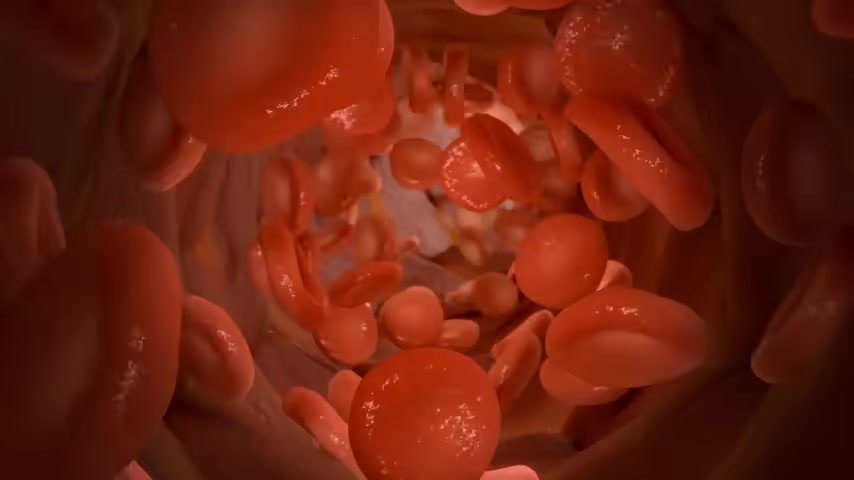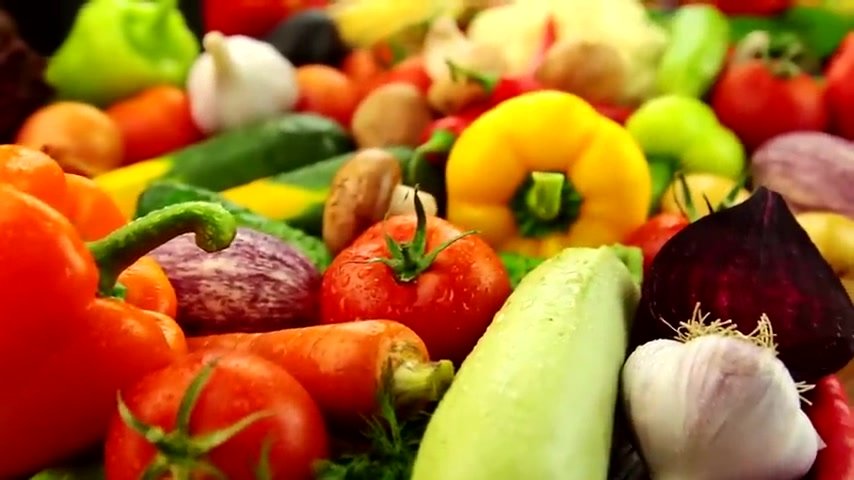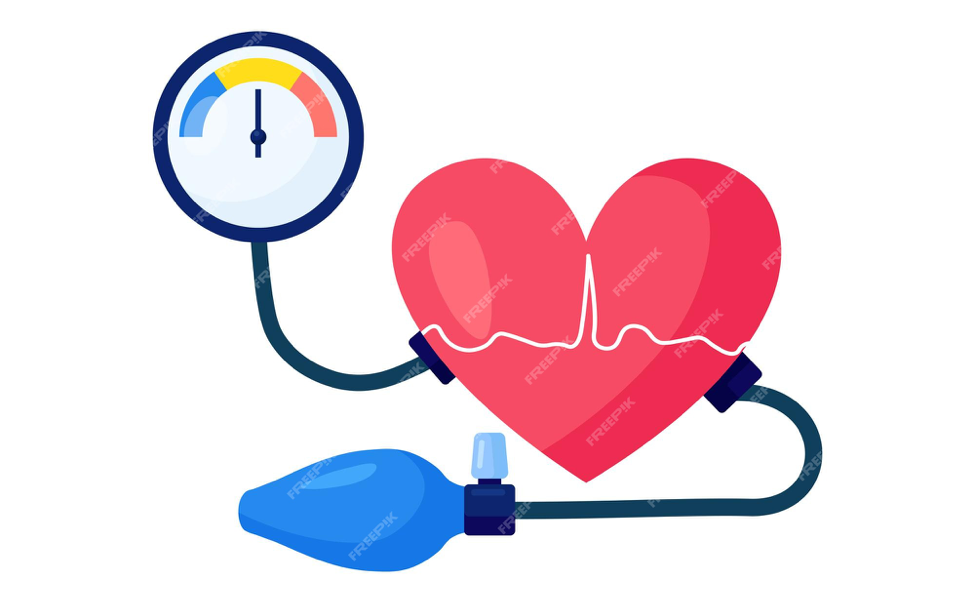Table of Contents
Explore the crucial connection between insulin resistance, potassium, and blood pressure. Learn how balancing these key elements can improve your health and manage conditions like hypertension and diabetes.
Maintaining optimal health requires a delicate balance of various nutrients and physiological processes. In this article, we’ll dive into the intricate relationship between insulin resistance, potassium, and blood pressure – three interconnected factors that can have a significant impact on your overall well-being.
Insulin resistance, a precursor to type 2 diabetes, can disrupt the body’s ability to properly regulate potassium levels. This imbalance, in turn, can contribute to the development of high blood pressure, a major risk factor for cardiovascular disease. By understanding the mechanisms behind these connections, we can uncover effective strategies to manage these conditions and improve your long-term health.
Join us as we explore the crucial role of potassium, the implications of insulin resistance, and the practical steps you can take to maintain healthy blood pressure levels. This comprehensive guide will equip you with the knowledge and tools you need to take control of your health and optimize your body’s natural systems.
In this topic, we’re gonna talk about insulin resistance , potassium , and blood pressure .
The Crucial Role of Potassium

Out of all the nutrients that you need , potassium is something needed in very large quantities .
You need 47 100 milligrams of potassium every single day .
Now , what does that mean with food ?
It means that hardly anyone is getting their potassium because you would need 7 to 10 cups of vegetables every single day .
So how many cups of vegetables do you consume in a given day ?
Maybe 5 ? Maybe less ?
But III do it because I I feel so much different .
But here’s the thing , we need 4 times as much potassium as we do sodium .
The Potassium-Sodium Balance: Implications for Fluid Regulation and Blood Pressure
Most people consume 4 times as much sodium as they do potassium .
They have lot of fluid retention .
So , they both work together in relationship to fluids and hydration .
But we need if you look at vegetable content , it’s always heavy in the potassium and very low in the sodium .
But if you’re doing like chips and salty things , that’s gonna that’s gonna throw this whole thing off .
So what happens when you have low potassium is you get high blood pressure .
| Topic | Details |
|---|---|
| Potassium Requirement | Around 4,700 mg per day, equating to 7-10 cups of vegetables daily. |
| Current Average Intake | Most people do not meet the required potassium intake. |
| Potassium-Sodium Balance | Ideal ratio: 4 times more potassium than sodium. Current average consumption: 4 times more sodium than potassium. |
| Consequences of Imbalance | Fluid retention, high blood pressure. |
| Benefits of Adequate Potassium | – Nervous System: Acts as a relaxer, calming the nervous system. – Arteries: Softens arteries, preventing strokes. – Muscle Function: Prevents cramps, aids in muscle contraction and relaxation. – Heart Health: Prevents arrhythmias and other heart-related issues. |
| Insulin and Potassium Relationship | Insulin is necessary for potassium absorption. Insulin resistance can lead to potassium deficiency. Increasing potassium intake can support insulin function and manage blood sugar levels. |
| Strategies for Managing Blood Pressure | – Increase Vegetable Intake: Boost potassium levels. – Focus on Potassium-Rich Foods: E.g., bananas, sweet potatoes, spinach, avocados, beans, salmon. – Monitor Salt Intake: Increase potassium instead of drastically reducing salt. – Consult Healthcare Providers: Before making dietary changes, especially if on medication. |
Potassium’s Versatile Benefits:
Potassium is a physiological relaxer .
It calms the nervous system .
It actually softens the arteries .

It actually can prevent strokes .
It’s very , very healthy .
Healthy mineral .
And , so it can also prevent constipation .
It also can prevent leg cramps .
So , it’s involved in nerve conductivity and muscle contraction and relaxation .
So with a problem with potassium , you can have a lot of cramps , tightness , and tension in your body , and you can also have a lot of , electrical problems with your heart .
Arrhythmias , atrial fib , that’s all potassium deficiency because people don’t consume enough .
So let’s pretend that you’re you have high blood pressure and you have to take a diuretic , thiazide .
Well , what that does is it gets rid of fluid .
Well , it does It also gets rid of potassium .

So what happens when you take this diuretic to fix your high blood pressure , you lose more potassium raising the blood pressure more .
So now , you need another medication .
And then you’re told to drink more water , which dilutes the electrolytes more , especially potassium , and your blood pressure goes higher because more water is not gonna hydrate you .
It’s gonna get rid of the electrolytes that you have , potassium , specifically , and you don’t get the hydration you once had .
So the whole myth of drinking more water to hydrate you is not quite true .
You need the minerals , specifically potassium .
That’s the 1 you need in the most amount .
Like , even magnesium , you need about 420 milligrams .
But potassium , maybe 47100 .
Insulin Resistance and Potassium Deficiency:
Now , also , if you’re salt sensitive , okay , especially with your blood pressure , what that really means is you’re potassium deficient .
The way to fix people that are salt sensitive is just increase potassium and they’ll do fine .
So instead of restricting salt , why don’t we just increase potassium ?
It’s a better strategy because you need potassium for other things .
98% of all the potassium in your body is inside the cell , not outside the cell .
So when you get test tested from your blood or whatever testing you do , it’s very difficult to test the potassium deficiency because it’s all inside the cell .
And so , you might you might think you have normal levels , but you really don’t because you never did a intracellular test for potassium .
The other interesting thing about potassium is it takes insulin to control and absorb potassium .
If you don’t have enough insulin , you can’t pull potassium in the cells .
So insulin regulates potassium .
Now , how does that relate to a pre diabetic , someone who has insulin resistance or a diabetic ?

Well , if they have insulin resistance , they’re gonna have , the cells are gonna block insulin .
So guess what’s gonna happen to the potassium ?
They’re not gonna have enough potassium .
So a lot of times when you have , a prediabetic or , like even a diabetic state , they have a huge , huge deficiency of potassium .
And 1 of the things I make sure that they do is greatly increase the vegetable content to increase the potassium to help , balance this thing out because there’s gonna have you’re gonna have so many side effects from that .
So if you actually add more potassium , you can decrease the need for insulin .
So that’s a really cool relationship .
Strategies for Managing Blood Pressure

I just wanted to touch on the relationship between these 2 , these 3 items right here , and if you have blood pressure , start increasing your vegetables .
And if you like this kind of information , if you like learning about nutrition , if if you find it interesting , I have a health coaching training program that you might be interested in learning about where we teach you a lot more about nutrition and how the body works .
key Points
- Potassium Requirement and Deficiency:
- Potassium is an essential nutrient needed in very high amounts, around 4,700 mg per day.
- Most people do not consume enough potassium, as it requires 7-10 cups of vegetables per day to meet the requirement.
- Potassium-Sodium Balance and Blood Pressure:
- We need 4 times more potassium than sodium, but most people consume 4 times more sodium than potassium.
- This imbalance can lead to fluid retention and high blood pressure.
- Benefits of Adequate Potassium:
- Potassium is a physiological relaxer that can calm the nervous system, soften arteries, and prevent strokes.
- It is crucial for nerve conductivity, muscle function, and preventing issues like cramps and arrhythmias.
- Insulin Resistance and Potassium Deficiency:
- Insulin regulates potassium absorption, so insulin resistance can lead to potassium deficiency.
- Increasing potassium intake, often through more vegetables, can help decrease the need for insulin and manage prediabetes/diabetes.
- Potassium-Focused Strategies for Blood Pressure Management:
- Rather than restricting salt, increasing potassium intake is a better strategy for those with salt-sensitive high blood pressure.
- Diuretics used to treat high blood pressure can deplete potassium, leading to further increases in blood pressure.
DATA
https://www.ncbi.nlm.nih.gov/pmc/articles/PMC9598512
FAQ
Potassium and Your Health: A Comprehensive FAQ Guide
Q: Does potassium help insulin resistance?
A: While potassium plays a crucial role in many bodily functions, including insulin sensitivity, there’s no direct evidence that increasing potassium intake can cure or reverse insulin resistance. However, maintaining adequate potassium levels is crucial for overall health and may indirectly support insulin function.
Q: Does potassium help maintain healthy blood pressure?
A: Yes, potassium is essential for maintaining healthy blood pressure. It helps counter the effects of sodium, which can raise blood pressure. Adequate potassium intake can contribute to lower blood pressure levels.
Q: How do you balance insulin resistance?
A: Balancing insulin resistance requires a multi-pronged approach. Lifestyle modifications are key, including:
- Weight management: Losing even a small amount of weight can improve insulin sensitivity.
- Regular exercise: Physical activity helps your body use insulin more effectively.
- Healthy diet: Focus on whole foods, lean proteins, and fiber, while limiting processed foods and sugary drinks.
- Stress management: Chronic stress can worsen insulin resistance.
Q: Is it recommended to increase or decrease potassium intake to reduce blood pressure?
A: Increasing potassium intake is generally recommended to help lower blood pressure. However, it’s crucial to consult a doctor before making significant dietary changes, especially if you have pre-existing health conditions.
Q: How long does it take for potassium to lower blood pressure?
A: The time it takes for potassium to lower blood pressure varies depending on individual factors. It’s not a quick fix, and it may take weeks or even months to see significant changes. Consistent dietary changes and a healthy lifestyle are essential for long-term blood pressure management.
Q: What form of potassium is best for high blood pressure?
A: There’s no definitive “best” form of potassium for high blood pressure. However, potassium-rich foods are generally the most effective way to increase intake. These include:
- Bananas
- Sweet potatoes
- Spinach
- Avocados
- Beans
- Salmon
Q: Potassium and blood sugar relationship:**
A: Potassium plays a role in regulating blood sugar levels. It helps insulin work more effectively, which can improve blood sugar control. Maintaining adequate potassium intake can be beneficial for individuals with diabetes or those at risk of developing the condition.
Q: Does potassium lower blood pressure immediately?
A: No, potassium doesn’t lower blood pressure immediately. It’s a gradual process that requires consistent dietary changes and lifestyle modifications.
Q: Potassium and blood pressure medication:**
A: Potassium supplements should not be taken without consulting a doctor, especially if you’re on blood pressure medication. Some medications can interact with potassium, potentially leading to adverse effects.
Q: How does potassium affect blood pressure?
A: Potassium helps regulate blood pressure by counteracting the effects of sodium. It helps relax blood vessels, which reduces resistance to blood flow and lowers blood pressure.
Q: Potassium citrate vs potassium chloride for blood pressure:**
A: Both potassium citrate and potassium chloride can be beneficial for blood pressure management. However, potassium citrate is often preferred as it may be easier on the digestive system. It’s essential to consult a doctor to determine the appropriate form and dosage for your individual needs.
Q: High potassium and high blood pressure:**
A: High potassium levels are generally not associated with high blood pressure. In fact, adequate potassium intake is crucial for maintaining healthy blood pressure. However, individuals with kidney disease or other medical conditions may need to monitor their potassium intake.




